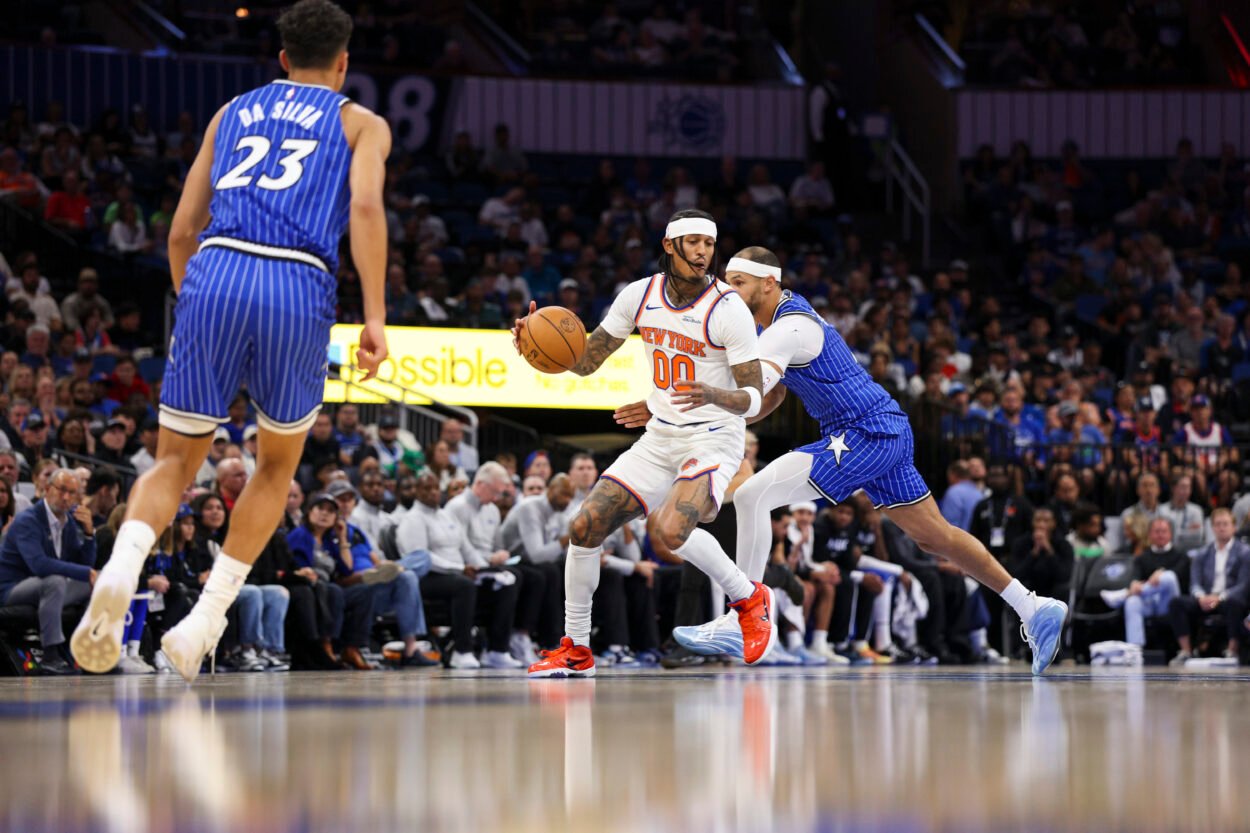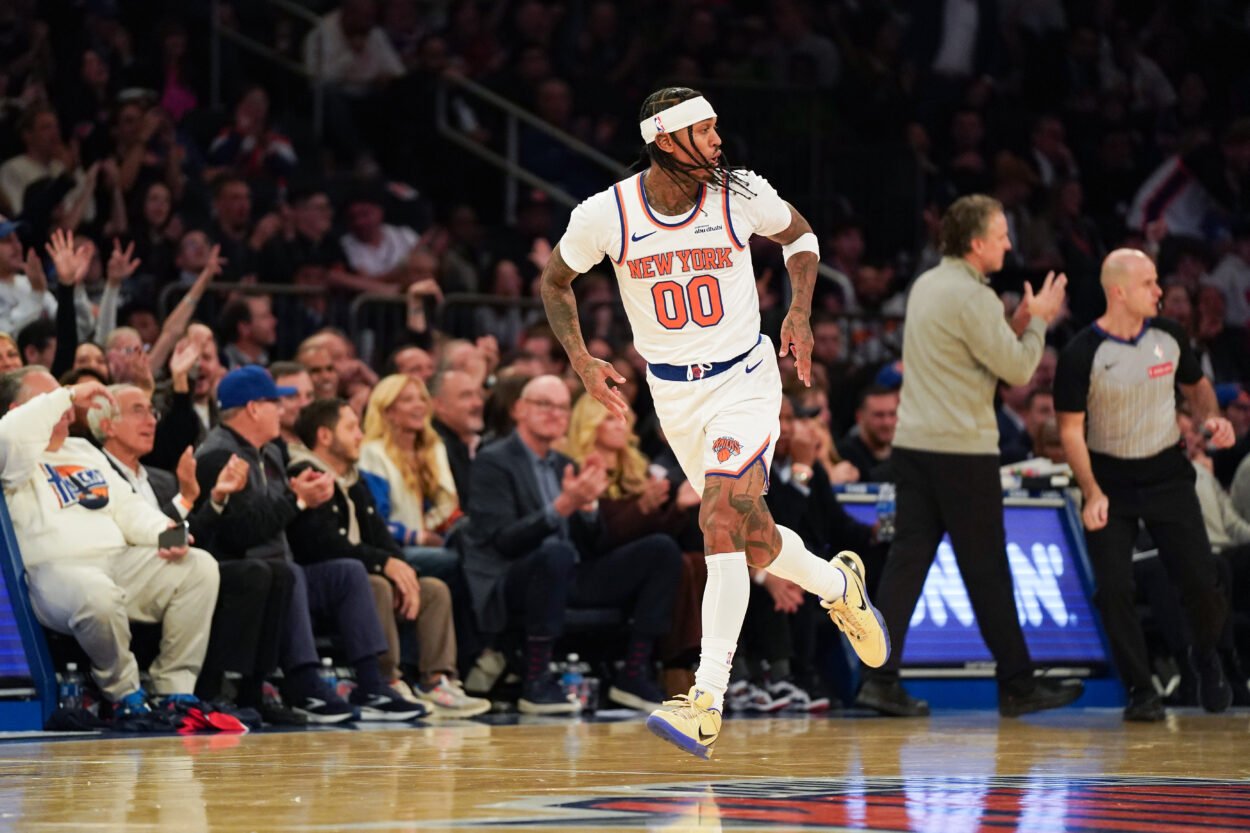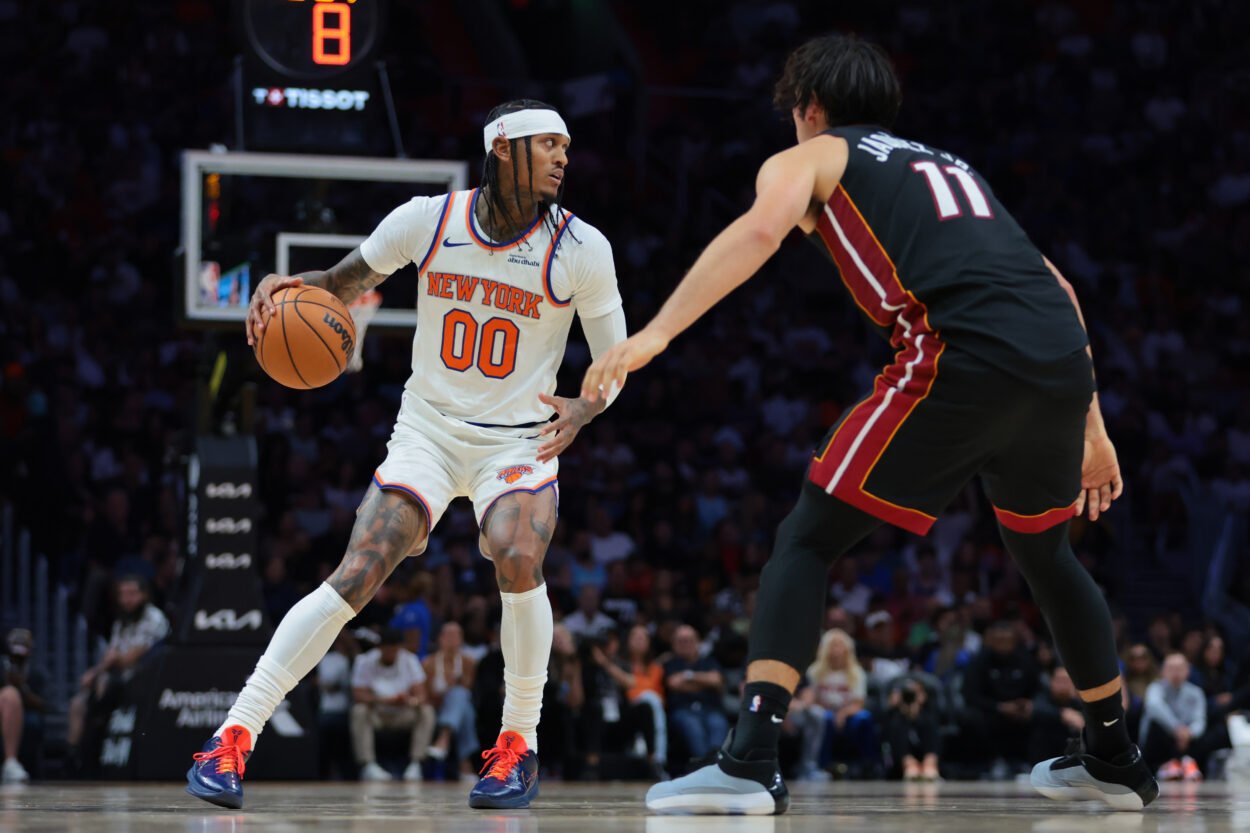
There is a specific kind of beautiful chaos that happens when Knicks‘ Jordan Clarkson touches the basketball.
It is the tattoos, the loose jersey, and the dribble that teeters on the edge of disaster before snapping into a crossover that leaves a defender on his heels. When the New York Knicks scooped him up off the scrap heap for a veteran minimum deal—just $2.3 million after the Utah Jazz bought him out—it felt like a low-risk flyer. Sixteen games into the season, that flyer has turned into a lifeline.
The bench was gasping for air. Clarkson is the only one providing oxygen.

A Bargain Bin Heist
In a league where reliable bench scoring usually costs the full Mid-Level Exception, getting this level of production for the cost of a luxury car is larceny. The Knicks have struggled mightily to generate offense when Jalen Brunson sits. The second unit often looks stagnant, afraid to shoot, or simply incapable of creating a shot.
Clarkson changes that dynamic the second he checks in.
He is averaging 10.8 points a night. He is grabbing nearly two rebounds and dishing out almost two assists. But the number that matters is the shooting percentage. He is hitting 48.5% from the field. For a guard known as a “chucker” earlier in his career, that efficiency is staggering. He isn’t just throwing up prayers; he is dissecting defenses that are often unprepared for his speed.
The Definition of a Microwave Scorer
We need to talk about the “microwave” label because it gets thrown around too loosely in NBA circles. For Clarkson, it is literal. He doesn’t need a rhythm; he is the rhythm.
Monday night was the perfect case study in veteran savvy.
- He missed all six of his three-point attempts.
- He still found a way to score 12 points.
- He finished with a +10 plus-minus.
A younger player would have let the cold shooting from deep ruin his entire night. The 33-year-old Clarkson simply adjusted. He drove the lane. He got to his spots in the mid-range. He impacted the game positively despite the jumper betraying him. That is the difference between a throw-in player and a winning player.

Filling the Void When It Matters Most
This production couldn’t come at a better time. The Knicks are walking wounded right now. Miles McBride, usually the spark plug off the bench, is dealing with an illness and a rough shooting slump. The team is also navigating life without OG Anunoby, which sucks a massive amount of versatility out of the lineup.
Clarkson isn’t replacing Anunoby’s defense. Let’s be real. He isn’t locking anyone down. But he is replacing the aggression. He puts pressure on the rim and forces the defense to rotate, something the rest of the bench struggles to do.
Mike Brown doesn’t love players who fail to rotate defensively (see Yabusele’s playing time), yet Clarkson is staying on the floor. He hustles. He gets in position. He isn’t a stopper, but he isn’t a liability, and right now that is enough to keep him on the court.
The Knicks didn’t bring him in to win a Gold Glove. They brought him in to flip the momentum of a stagnant quarter. He is doing exactly that. If he keeps playing this way, that $2.3 million contract isn’t just a bargain; it’s the best value play of the entire season.
